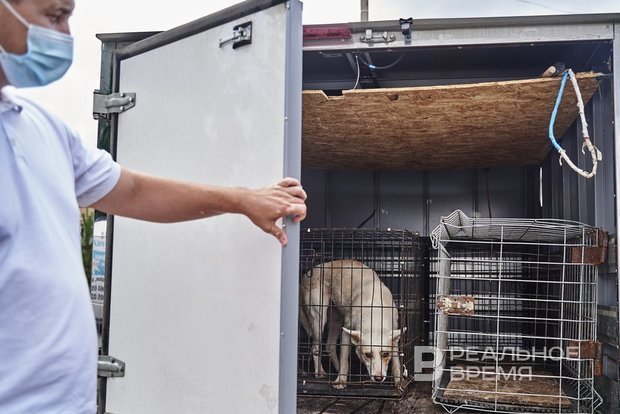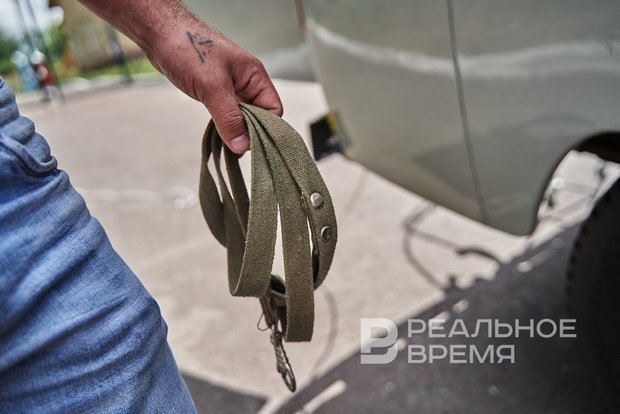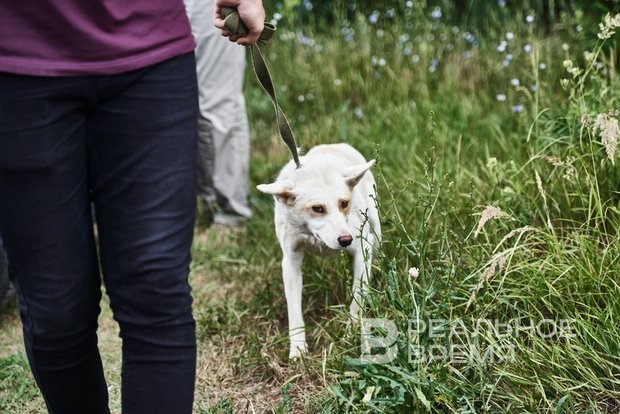Tatarstan may introduce a silence regime for dog owners

As it became known to Realnoe Vremya, Tatarstan may approve additional requirements for keeping and walking pets. It is assumed that they will be valid for six years — from September 1, 2023 to September 1, 2029 inclusive. The corresponding draft resolution of the Cabinet of Ministers of the Republic of Tatarstan is prepared by the Main Veterinary Department of the Tatarstan Cabinet of Ministers.
It should be noted that the rules do not apply to legal relations on the maintenance and use of service animals, defined by Article 14 of Federal Law No. 498, as well as to walking guide dogs accompanying visually impaired people.
On July 14, 2022, amendments to Federal Law No. 498-FZ “On Responsible Treatment of Animals” came into force, among the changes — granting the authorities of the subjects the right to establish additional requirements for the maintenance and walking of pets, in addition to those requirements that are already in force at the federal level.
Requirements for keeping pets — the size of doghouses and the prohibition to keep them in the corridors of houses
The first among the additional requirements states that the minimum space for the vital activity of pets in cages, doghouses and aviaries should be determined taking into account the norms established by the decree of the Cabinet of Ministers of Tatarstan dated February 28, 2020 “On approval of the procedure for organising the activities of animal shelters and the norms for keeping animals in them on the territory of the Republic of Tatarstan”. For example, one cat is supposed to have 80 square centimeters in an isolated compartment and 50 square centimeters in a cage.
Other rules are also established:
- Keeping a pet in a communal apartment or in a residential space occupied by several families is allowed only with the written consent of the owners of the residential premises, drawn up in a free form.
- It is allowed to keep dogs in free range or on a leash in a fenced area belonging to the dog owner. At the same time, it should be “fenced in a way that does not allow the dog to go outside of it independently," and a warning sign must be hung at its entrance.
- It is prohibited to keep pets in the premises of apartment buildings that are not parts of apartments, in other words, in the corridors, as well as in the adjacent territories.
- It is prohibited to organise temporary kennels and hotels for pets in apartments and common areas of apartment buildings, as well as on the territory of residential buildings, garden plots and garage cooperatives.

- The maintenance and presence of persons with pets in premises or on land plots owned by someone is allowed with the consent of the owner, drawn up in free written form.
Prohibition of walking dogs drunk and children under 14 years of age
As for dog walking, there are also a few new rules. For example, the dog must be led to the place of walking on a leash and in a muzzle. However, there are exceptions. So, a leash is not needed for dogs of miniature breeds (at the withers up to 25 centimeters), puppies under the age of 3 months if they are carried on their hands or in a container. A muzzle is also optional for them. Another exception here is dogs with a flat muzzle, including French and English bulldogs, pugs, etc.

Some people are generally prohibited from walking dogs. Among them:
- persons unable to control the behaviour of dogs;
- persons who are in a state of alcoholic, narcotic or other toxic intoxication;
- persons recognised as incapacitated;
- children under 14 years old unaccompanied by adults — except for walking puppies and miniature dogs.
Walking will be prohibited on the territories of medical, educational and sports organisations, on beaches, etc. The silence regime is also introduced for dog owners when walking and keeping them at home:
- on weekdays from 10 pm to 6 am of the following day;
- on Saturday and Sunday from 11 pm to 6 am next day.
Fines in Ugra, a ban on throwing pets in Rostov Oblast, sterilisation in the Crimea
Recently, additional similar rules have been introduced in several regions. For example, in Rostov Oblast, pet owners are “obliged to take measures to ensure the peace and quiet of citizens”, to clean up the waste products of pets not only on the street, but “regardless of the location of the pet”. Pets are not allowed in the premises of an apartment building that are not part of an apartment, in the common areas of an apartment occupied by several families, as well as on balconies and loggias, attics and basements. Moreover, detailed rules for feeding and even washing bowls have been established: “Drinking bowls and bowls for pets are subjected to daily washing using detergents that are safe for pets.” The dimensions, design, arrangement of doghouses and aviaries are also prescribed — up to the bedding material. As in Tatarstan, in Rostov Oblast, it was forbidden to walk dogs drunk and children under 14 years old.

“When keeping pets, it is not allowed to: leave pets without food and water, as well as keep them in conditions that do not meet the requirements of sanitary and hygienic and veterinary-sanitary norms and rules, transfer pets to testing laboratories and clinics as objects of scientific research, perform actions related to leaving pets outside places of their detention in order to terminate the ownership of pets," it is noted in the rules that came into force on January 1.
In the Khanty-Mansiysk Autonomous Okrug-Yugra, among others, leaving of animals alone, their maintenance in the premises of apartment buildings that are not parts of an apartment, and in the adjacent territories, walking of pets belonging to the canine families (with the exception of dogs), marten, raccoon, without a harness and leash are banned. Fines ranging from 500 to 3,000 rubles are imposed for violating the rules in the region.
In Crimea, the list included sterilisation or castration of mature animals in order to control the appearance of unwanted offspring, walking animals above 35 cm at the withers in a muzzle, collar and with a leash, a ban on walking animals in kindergartens, schools, universities.
The elaboration of additional rules has been announced in Irkutsk Oblast, St. Petersburg, Sakhalin, Komi, etc.